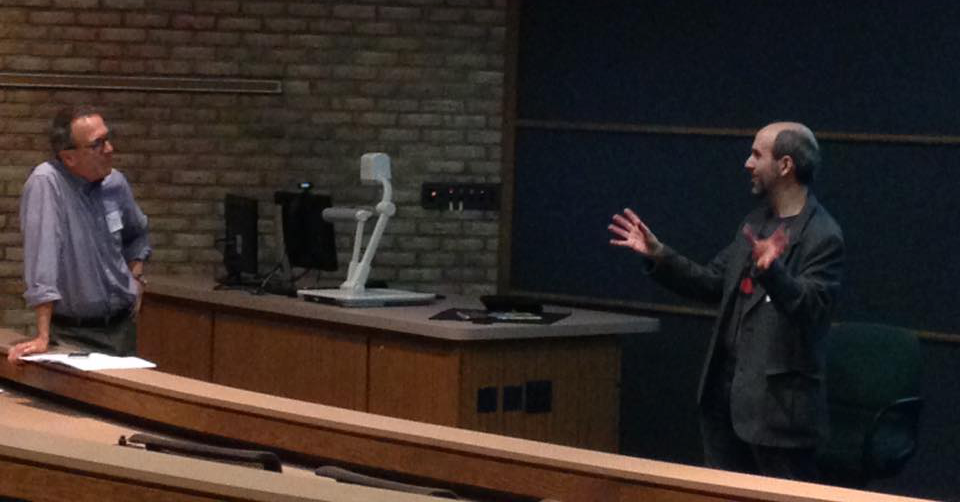
Earlier this summer, I had the privilege to attend BioLogos‘ Evolution & Christian Faith conference. Last week, I shared some of the talks from the conference, with an emphasis on theological topics. This week, I want to highlight some of the scientific topics. I had a hard time choosing, especially since these recordings allowed me to catch up with talks I wasn’t able to attend in person. There are even more talks available here, covering areas I haven’t even begun to address, like science education.
Scientific talks tend to rely more heavily on visuals, but for most of these I only have access to the audio. I tried to select talks that worked well just as audio presentations; I hope you find them as informative and edifying as I did.
Randomness
Oxford University professor Ard Luis shared an entertaining presentation which highlighted his enthusiasm for science and addressed concerns about the role of randomness in evolutionary biology. He makes a distinction between stochastic processes and random processes, and argues that stochastic processes can be understood positively and that evolution is a stochastic process.
Jim Bradley of Calvin College also spoke on the topic of randomness and our perception of random processes. I particularly appreciated the historical perspective he provided, pointing out how Greek mythology has influenced the way we think about randomness and its relationship to divine action.
Information
American Scientific Affiliation president Randy Isaac, a recent ESN interviewee, spoke on the topic of information. I routinely see people asking the question “Where does the information in DNA come from?” This talk tackles that question, emphasizing the importance of clarity when thinking about information, as it is associated with several related but different concepts. I find it particularly helpful to remember the distinction between measuring information storage and measuring surprise.
Evolutionary Mechanisms
Ben McFarland of Seattle Pacific University gave a cool talk about how chemistry makes life possible, and perhaps even inevitable. In a sense, biology and life are contained in the periodic table in the way that a whole range of geometry theorems are contained in Euclid’s postulates, or the way that American society is encoded in the Constitution.
Sy Garte of the Natural Philosophy Institute spoke on the diversity of mechanisms that fall under the umbrella of evolutionary biology. Variation and selection at the level of individual genes is just part of a much bigger picture.
Science Communication
Ruth Bancewicz, Faraday Institute research associate and ESN blogger, gave a stirring talk on the wonder that studying science evokes in her. Her talk is part of her efforts to share that wonder with others.
Yours truly had the opportunity to give a talk on how science, including evolutionary biology, can help us to know God, and not simply to know of him (whether or not he exists). The talk represents my vision for this blog, with a slant on how it relates to the mission of BioLogos. If anything further comes of that potential partnership, you can be sure to hear about it here. I’ve added a screencast of my slides so you can see the visuals. (Audio only here)
Housekeeping note: Next week, reader survey! Prizes!!
Andy has worn many hats in his life. He knows this is a dreadfully clichéd notion, but since it is also literally true he uses it anyway. Among his current metaphorical hats: husband of one wife, father of two teenagers, reader of science fiction and science fact, enthusiast of contemporary symphonic music, and chief science officer. Previous metaphorical hats include: comp bio postdoc, molecular biology grad student, InterVarsity chapter president (that one came with a literal hat), music store clerk, house painter, and mosquito trapper. Among his more unique literal hats: British bobby, captain’s hats (of varying levels of authenticity) of several specific vessels, a deerstalker from 221B Baker St, and a railroad engineer’s cap. His monthly Science in Review is drawn from his weekly Science Corner posts — Wednesdays, 8am (Eastern) on the Emerging Scholars Network Blog. His book Faith across the Multiverse is available from Hendrickson.

Leave a Reply